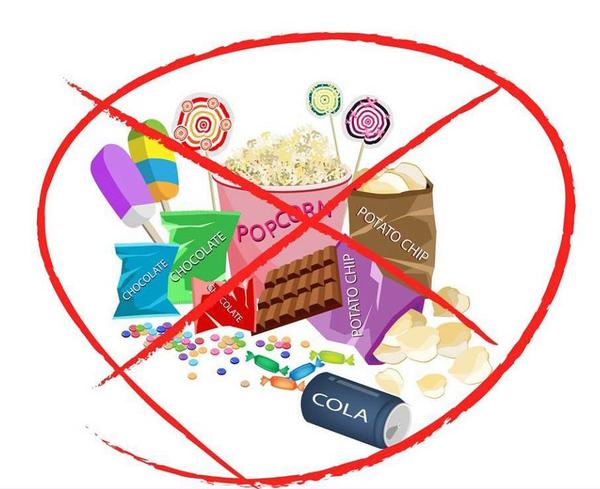
Can your diet affect the degree to which you feel pain and discomfort on a daily basis?
Yes, absolutely.
The kinds of food we eat have a tremendous impact on the way we feel everyday – the degree to which we experience arthritic pain, have energy, or suffer from unpleasant symptoms like lack of sleep, digestive upset, or skin eruptions. Often, the root of our pain or uncomfortable symptoms is low-lying chronic inflammation.
There are certain foods that have been scientifically shown to cause inflammation in the body if eaten in excess like sugar, highly processed foods, and hydrogenated or partially hydrogenated oils. Eating these foods can exacerbate and make pain or discomfort worse. There are also foods that inhibit the out of control immune response of the body like green leafy vegetables, berries, and spices, like turmeric, as they contain polyphenols that block the immune system’s inflammatory response as well as help to regulate it.
However, it is not that simple (is it ever?). Because we are all different (genetics) with different health histories (environment) we all react differently to food – even the uber healthy foods that contain health-promoting polyphenols.
Much of these differences can stem from a condition called Leaky Gut. This is when the intestinal lining of the digestive system becomes compromised (either due to a poor diet, chronic stress, trauma, overuse of antibiotics, or dysbiosis) and the tight junctions between the cells of the lining widen and let larger particles of food into the bloodstream that normally wouldn’t be allowed to pass through. The body’s immune system then begins to recognize these larger particles of food as dangerous invaders and mounts an attack on them. So every time you eat that food and it is allowed to pass into the bloodstream, it triggers an immune response, causing inflammation in the digestive tract and elsewhere in the body. This can present itself as:
- fatigue
- brain fog
- painful joints and muscles
- digestive upset
- emotional upset and mood swings
- sleep problems
- inability to lose weight
- blood sugar imbalances
- hormone imbalances
And the list goes on….
Continued eating of these triggering foods can cause chronic inflammation in the body which then can lead to diseases like cardiovascular disease, arthritis, autoimmune disease, and even Alzheimer’s and diabetes. If you suffer from any of the above or related conditions, it’s possible that you need to limit your diet of inflammatory foods while taking steps to heal the Leaky Gut.
What does this look like? For starters you may need to:
1) Eliminate those foods, or in my book, ‘non-foods’ that I mentioned earlier like:
- processed sugar
- processed foods (anything packaged or boxed)
- partially hydrogenated or hydrogenated oils
- foods that contain artificial coloring or flavoring
2) Decrease or eliminate foods that are known to commonly trigger an inflammatory response in the body or are difficult to digest like:
- gluten
- dairy
- soy
3) Take steps to discover the foods, including the so-called healthy ones, which are triggering an inflammatory response in your body and rest from them. There are natural health care practitioners, like functional medicine doctors, naturopaths or even some chiropractors that provide food sensitivity and intolerance testing. It is not fail proof, but it is a good first step in helping you to heal the lining of your digestive tract.
Another option is to skip the expensive testing and conduct your own testing on yourself by going on an elimination diet. This looks like abstaining from certain foods for a period of time (usually 3-6 weeks) and then reintroducing them back into the diet one at a time while taking note of any symptoms. The major triggering foods tend to cause a response within a 72-hour period. The foods that trigger symptoms are the foods that are causing an inflammatory response in the body. For those who are interested in learning more about the elimination diet I highly recommend reading Dr. Liz Lipski’s book, Digestive Wellness.
My Approach
As a massage therapist, I offer a holistic approach to addressing chronic pain in the body. In addition to the hands on healing work I do in my sessions, I also offer nutrition and lifestyle coaching that focuses on supporting the health and integrity of the digestive system. Much of the chronic back pain that I address in my sessions can be greatly reduced through dietary and lifestyle changes carried out by the client at home.
I may also encourage my clients to do a gentle whole foods cleanse with the changing of the seasons in Spring or Fall. Cleansing not only supports reconnecting with Mother Nature’s cycles (and thus our own), but when combined with an elimination diet, can serve as a great tool for identifying those foods which most nourish us and those that are wreaking havoc on our bodies.
Support Your Body, Mind and Soul with Gentle Seasonal Cleansing
To learn more about the upcoming cleanse that I’ll be offering with fellow massage therapist, Meredith McNown, in Boulder, Colorado this early fall, come to our Fall Cleanse and Intro Night and Food Tasting! You’ll not only learn about our offering, but you’ll leave with tips and tools on how to support yourself during the transition from summer to fall and fall to winter. To learn more about or register for this event click here or go to:
https://www.eventbrite.com/e/fall-cleanse-intro-night-and-food-tasting-tickets-26588404634
Hope to see you there!

